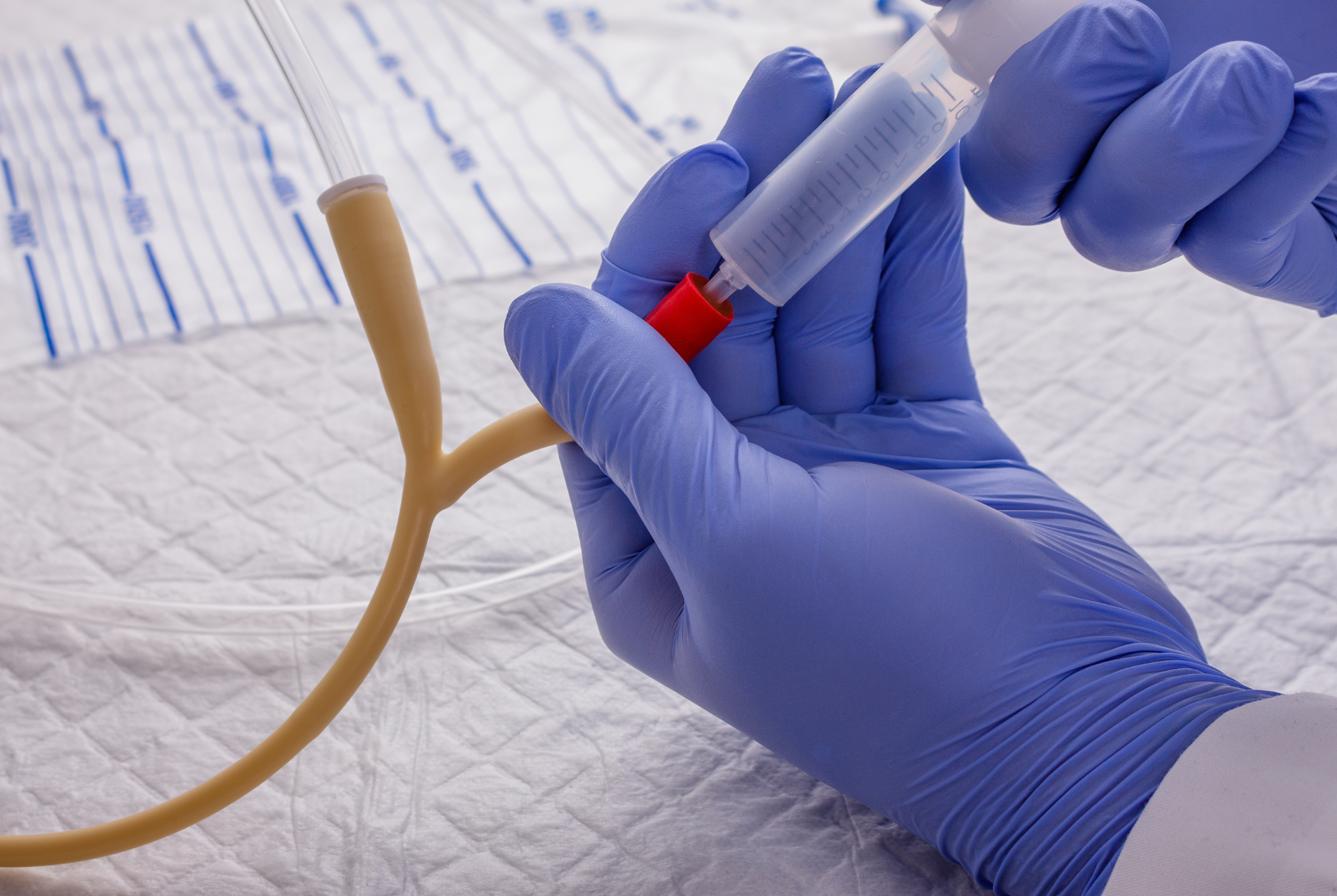Having a problem with the digestive system can cause a great deal of discomfort and can make you feel bloated and sluggish. There are many causes of an upset digestive system, such as an unhealthy diet, stress, antibiotics and travel, to name a few. Many people suffer from digestive-related problems at one time or another.
One-third of the population regularly suffer from digestive illnesses such as irritable bowel syndrome, constipation, diarrhoea, stomach-ache, nausea and sickness, and 60% of British adults have experienced digestive problems when in stressful situations.
To help ease symptoms or reduce the risk of having bowel problems, there are some simple things you can do yourself.
Routine for healthy digestion
It is important to identify a routine of a place and time of day when you are comfortably able to spend time on the toilet. Respond to your bowel’s natural pattern – when you feel the urge, do not delay. A warm drink with breakfast can also help encourage the bowel to work regularly.
Foods that promote a healthy digestive system
We have compiled some useful diet tips below which could help ease and avoid bowel related problems and help you to maintain a healthy digestive system.
- Choose a wholegrain breakfast cereal or porridge in the morning, you could even add a handful of nuts and seeds or some fruit
- Eat small regular meals throughout the day.
- Swap white bread for wholegrain or granary bread.
- Eat a balanced diet, with a variety of different foods. Choose foods that are rich in fibre such as fruit, vegetables and starchy carbohydrates. A moderate amount of lean meat, fish, eggs and protein alternatives are also recommended, along with milk and dairy foods.
- Eating fruit, vegetables and wholegrain cereals is associated with reduced risk of certain cancers including those of the digestive system. These foods are high in fibre, antioxidants and other protective nutrients. Be careful not to eat excessive amounts of fibre as this can also cause problems with constipation or loose bowel movements that are difficult to control. For information about fibre contents view the fibre contents chart. For further information and advice on food and diet, please visit the NHS Choices website.
- Limit the amount of sugary and fatty foods you eat. If you feel hungry and need a snack, try to keep hunger at bay with nuts or a piece of fruit. Artificial sweeteners can make bowel leakage worse.
- Chew well. Break down each mouthful into small pieces. This helps release the enzymes that aid digestion so that food is processed thoroughly and all the goodness extracted.
- Don’t miss meals. A lack of food in the system can cause excessive gas – and lead to a gurgling, wind filled stomach.
- Try to avoid eating large or fatty meals before going to sleep.
The bacteria within your intestines are key to good digestive health.
It may help some people to maintain a favourable balance by taking a probiotic product each day (try a two week trial to see if they help). This tops up the ‘good’ bacteria you should already have in your large intestine.
Being overweight or obese can affect health in general and is especially the case concerning our digestive system.
Download our Bowel Diary, which will allow you to track what foods are triggering your problems.
Healthy fluids and drinks to improve digestion
To maintain a healthy bowel, also try to drink enough fluids. The minimum recommended daily fluid intake for an adult is between 1.5-2 litres (6-8 glasses).
You should also increase your fluid intake in hot weather or when exercising. Your urine should be a pale straw colour; if dark, it is likely you are drinking too little.
Water supports a healthy digestive system
The human body needs water to maintain enough blood and other fluids to function properly. Therefore it is essential that you keep yourself hydrated. As soon as the body begins to lose a substantial amount of water more quickly than it is replaced, the body starts to get dehydrated. A common effect of dehydration on your digestive system is constipation.
Limit the amount of alcohol you consume
Alcohol is toxic to every part of the body, including the brain, the pancreas, the muscles and our digestive system. Alcohol is at its most concentrated in the stomach and this is especially the case when no food is present. As a result, when consumed in large amounts, alcohol can cause irritation and inflammation of the stomach lining. The polyphenols in red wine however may have a positive effect on the gut microbiome if consumed carefully and moderately. This, in turn, may result in nausea and vomiting.
Women should drink no more than 2 – 3 units a day, and men 3 – 4 units. A unit is 10ml or 8g of pure alcohol. The number of units in a drink depends on what you are drinking – how strong it is and how much is there. Half a pint of 3.5% beer/lager/cider is one unit, one small glass (125ml) of wine at 9% is one unit.
For advice on reducing alcohol, please visit the NHS Live Well website.
Gentle exercises to help digestion
- Sphincter exercises – these are specific exercises that focus on the anal sphincter muscle. These exercises can help to improve bowel control.
- Pelvic floor exercises or pelvic floor muscle rehabilitation can also help alleviate incontinence. These exercises are designed to strengthen the muscles, improve their functional ability and therefore improve both bowel control and bladder control.
- General exercise – It is important to try and exercise regularly but don’t overdo it. You should aim for 30 minutes of moderate activity at least five times a week. It helps to vary the type of exercise that you do. Try different activities such as swimming, walking, aerobic activities, Pilates, and Yoga. Please seek advice from your doctor or physiotherapist if you have a medical condition or mobility difficulties.
- Drink water whilst exercising to replace any water loss and to remain hydrated. It is essential to do exercises that you enjoy, this will help you to stay motivated and interested. You should also take some time off between activities and relax, allowing the body to recover and the muscles to recuperate.
Medication for the digestive system
As well as killing harmful bacteria, many antibiotics can also kill the beneficial bacteria that work to keep our digestive system healthy. When we take antibiotics, up to 60% of the total amount of bacteria in our gut – both good and bad – can be killed. Sometimes this can result in diarrhoea or symptoms of irritable bowel syndrome.
Sleeping better helps with digestion
The amount of sleep we get can affect our bowel habits. Much like the rest of our body, our digestive system needs time to rest. Going to bed and getting up at regular hours each day can help our digestive system work more effectively and improve the regularity of our bowel habits.
Reduce stress for a happier gut
Stress is something that is quite difficult to avoid in today’s society. Problems occur when our lives cause a lot of stress, and one of the first parts of the body to react to stress is our digestive system.
Stop smoking to aid digestive health
Smoking is bad for every aspect of your health which includes your digestive health. Smoking is responsible for many changes in the digestive system. It contributes to common disorders such as heartburn and peptic ulcers.
If you would like help in giving up smoking, please visit the NHS Live Well website to find out about the advice and support available in your area of the UK.
How ageing can impact digestive health
As we get older, our bowels tend to become more sluggish. This is due to many factors including changes in our diet and less exercise. There is some evidence to suggest the lower bowel itself actually changes in old age. In some cases, this can lead to bowel emptying difficulties and leakage. It is important to seek help from your GP or healthcare professional if this occurs.
Other bowel problems such as diverticular disease can also become more common as we age. The majority of the immune system is gut-associated; it is estimated that 85% of the body’s lymph nodes are located in the gut. Our gut bacteria help support this; another reason why it is important that as we get older we try and maintain a healthy gut flora.
The NHS Bowel Cancer Screening Programme offers screening every 2 years to all men and women aged 60 – 74, and is expanding to include people aged 50-59. . People in this age group will automatically be sent an invitation, and then their screening kit so they can do the test at home.
Your GP will provide your contact details, so it is important that he or she has your correct name and address. After your first screening test, you will be sent another invitation and screening kit every 2 years until you reach 74. If you are 75 or over, you can ask for a screening kit by contacting your programme hub on Freephone 0800 707 60 60. Find out more.
An updated version of IBS Diet and Lifestyle: Where to start
IBS Diet and Lifestyle: Where to start
It’s not uncommon to struggle with a diet for Irritable Bowel Syndrome – knowing what your triggers are and what foods may help can be the key to reducing symptoms. We spoke to Sarah Monk, Registered Dietitian to get the facts about Irritable Bowel Syndrome (IBS) and what vegetables to choose to help manage symptoms. We’d like to thank Sarah for her time and expert advice on this important subject.
Every November Cancer Research runs Veg Pledge event, to encourage the nation to go vegetarian or vegan for the month. It sounds simple, but there are many considerations to take into consideration before making a big dietary change like this, even if it’s only for one month.
Can vegetables help IBS?
So we Pledge to eat more Veg because it’s good for us, right? Well yes, and no, Vegetables contain vital vitamins and minerals which help make up a healthy diet but if you live with IBS then some types of vegetables, taken in large quantities, may make your symptoms worse; some foods may make you double up in pain, have embarrassing wind, diarrhoea and constipation and make your abdomen swell until you look 9 months pregnant… sound familiar?
What can you do to reduce IBS symptoms?
Changing your diet can help alleviate these symptoms but the most important tips to remember are:
- Follow a healthy, balanced diet
- Stay Hydrated (Drink 8 cups per day)
- Minimise or manage stress (download an App such as Calm or Headspace to support you to do this)
- Stay active (a gentle walk or swim will help alleviate stress and help control your symptoms)
Knowing what to eat is always a challenge for people with IBS as some common foods such as onions, garlic, cauliflower, beans and pulses (chickpeas, lentils, baked beans and kidney beans) are often the culprits, which set off your symptoms. The other challenge is not everyone’s sensitive gut is the same, as lots of other lifestyle factors and foods have an effect on how our gut functions.
So what vegetables can you eat with IBS?
There are many nutritious vegetables that you can enjoy when on a diet suitable for Irritable Bowel Syndrome. Remember: Eating regularly, about 3 times a day with small snacks in-between if hungry, may also help, and avoid missing meals or eating late at night.
Some veg can be taken in small quantities, say 20-40gms per portion, these include:
- Butternut squash
- Broccoli
- Avocado
- Sweetcorn
- Peas
The ‘safer’ veg can be enjoyed twice to three times a day. Aim for 80gms (3 tablespoons) of
- Aubergine,
- Bean sprouts
- Bamboo shoots
- Cabbage
- Carrot
- Courgette
- Chestnuts
- Cucumber
- Lettuce
- Olives
- Parsnips
- Peppers,
- Plantain
- Potato
- Pumpkin
- Rocket
- Radish
- Spinach
- Tomatoes
- Yam
Eating habits and tips whilst on an IBS diet
With IBS, no one diet or medicine works for everyone. If you have been diagnosed with it, there are several things you can do to help.
- Avoid delaying or skipping meals
- Stop eating too fast
- Avoid eating lots of spicy, fatty or processed foods
- Try not to eat more than 3 portions of fresh fruit a day
- Try not to drink more than 3 cups of coffee, tea or caffeinated drinks per day
- Avoid drinking large amounts of alcohol or fizzy drinks
If you’re worried about making a change to your diet, always speak to your GP or contact a Registered Dietitian. If you’re ready to get started, find out more about Veg Pledge.
Sarah Monk








